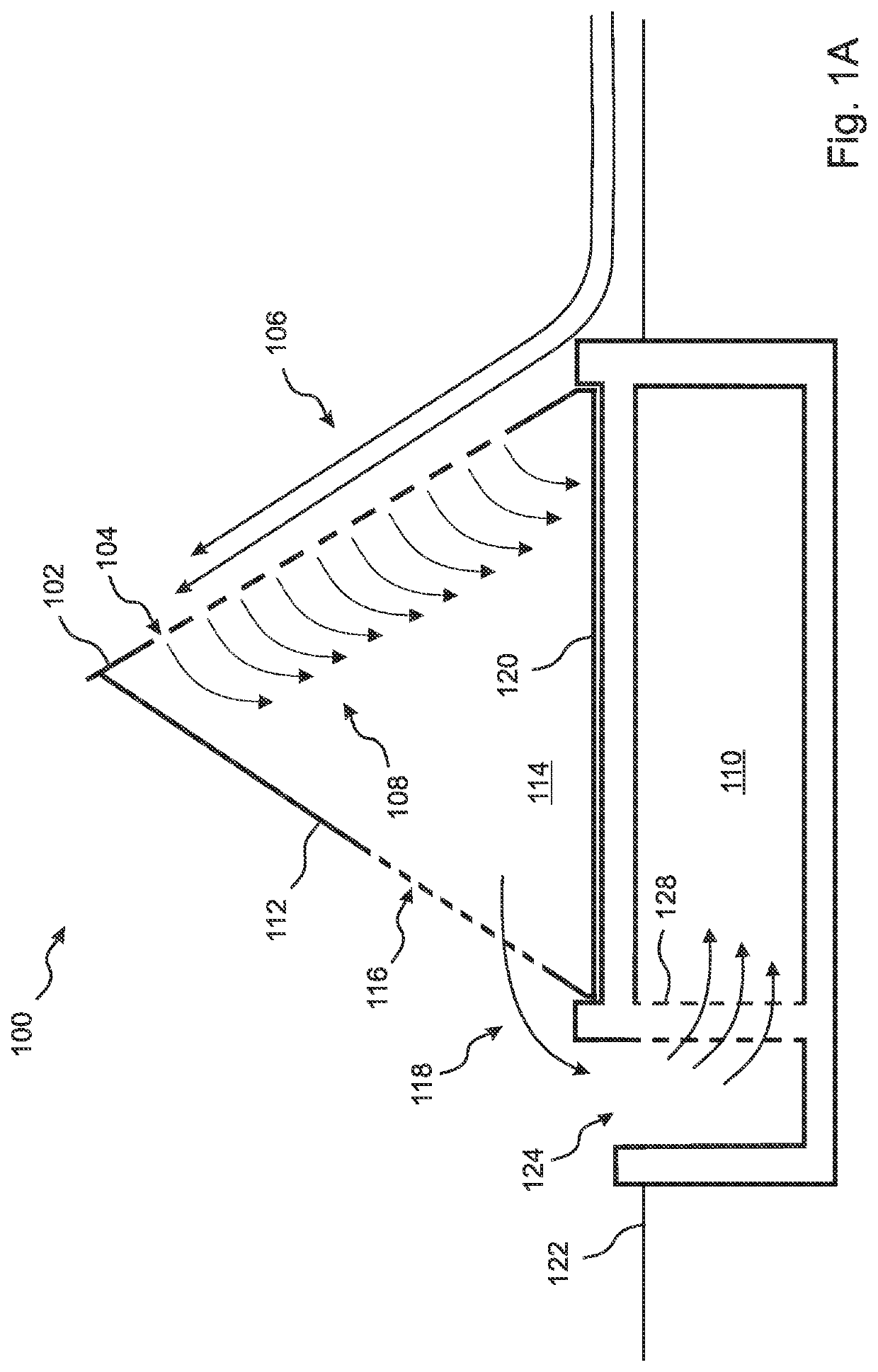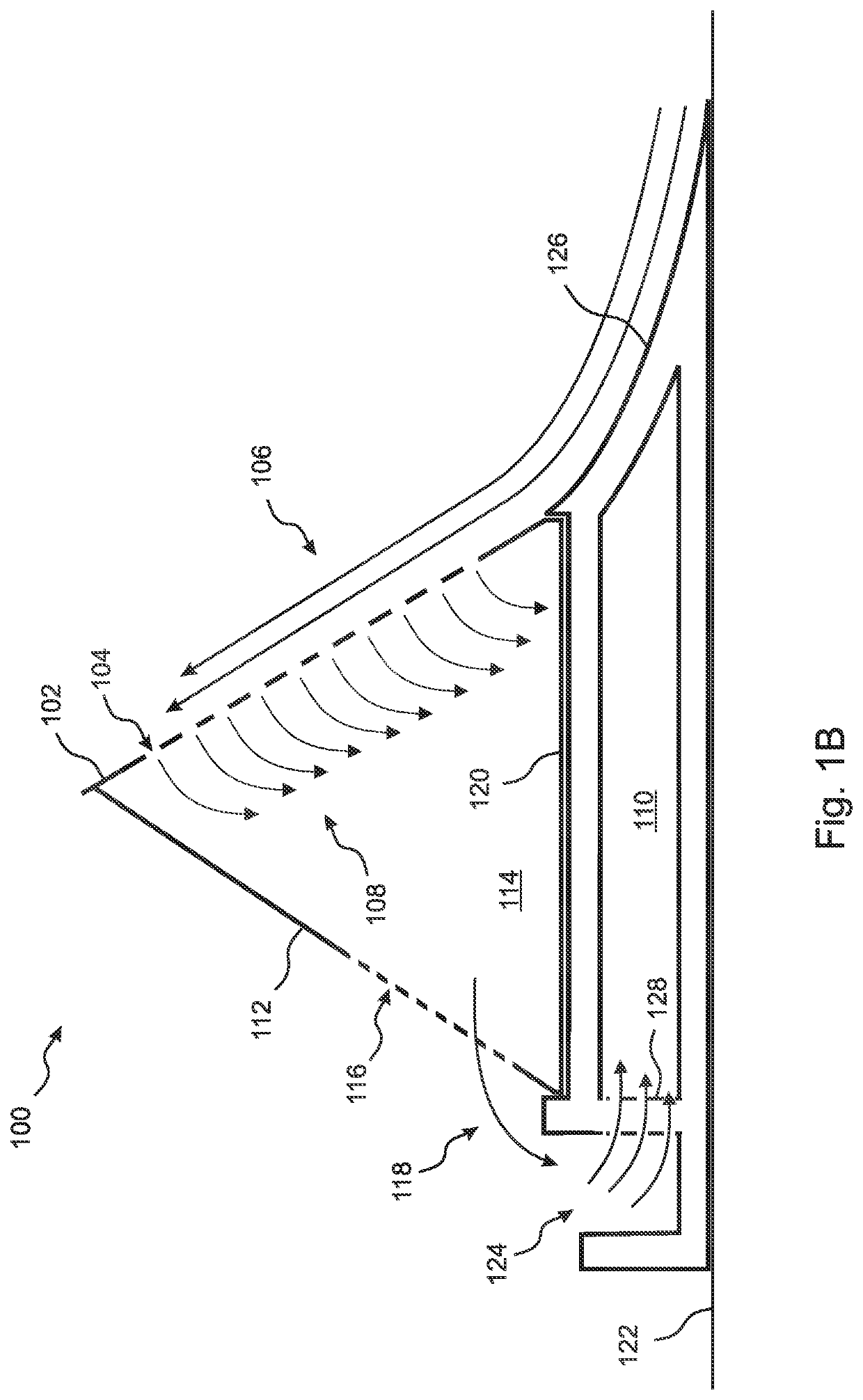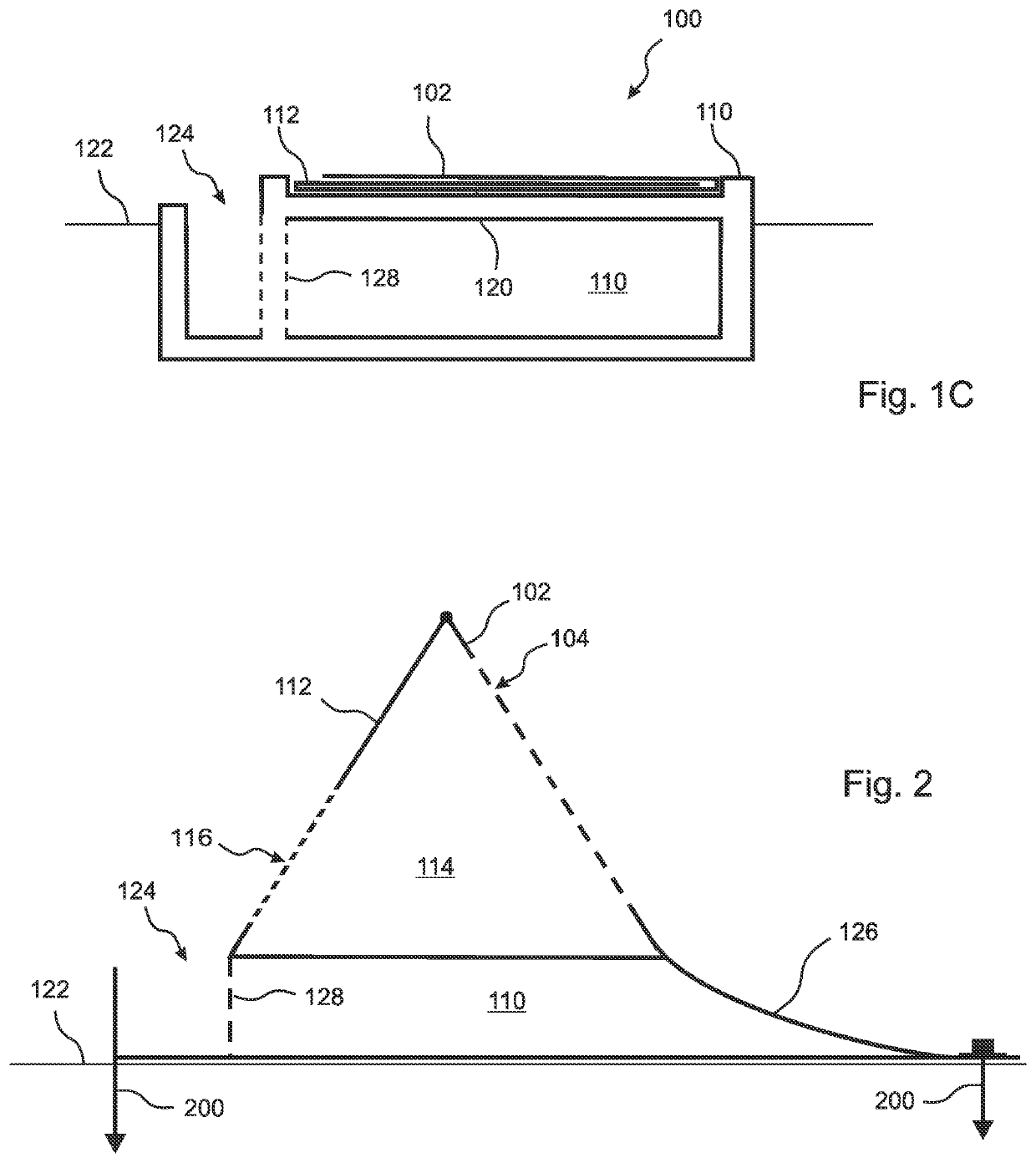Beach erosion inhibitor
a beach erosion inhibitor and beach technology, applied in the direction of piers, groynes, breakwaters, etc., can solve the problems of sand to mix with water and wash out to sea, significant shoreline loss, and considerable amount of effort and cost expended each year, so as to reduce sand beach erosion, easy and inexpensive installation, and light weight
- Summary
- Abstract
- Description
- Claims
- Application Information
AI Technical Summary
Benefits of technology
Problems solved by technology
Method used
Image
Examples
Embodiment Construction
[0065]The present invention is an apparatus that is able to reduce sand beach erosion and / or rebuild sand beaches. The apparatus includes a sand-collecting apparatus and a sand-collecting extension, both of which are light in weight, easy and inexpensive to install, and easy to remove and relocate. A method for employing the disclosed sand-collecting apparatus is also disclosed.
[0066]Rather than attempting to reduce or block wave energy, the disclosed sand-collecting apparatus filters and removes entrained sand from the water that flows upward across the beach after a wave has broken. The disclosed sand-collecting apparatus is therefore configured for placement near or at the high tide level, where it is not subject to strong wave action. Accordingly, the disclosed sand-collecting apparatus can be relatively light in weight, and is therefore less expensive to construct, easier to install, and easier to remove and / or relocate than prior art devices. As sand is accumulated within the ...
PUM
 Login to View More
Login to View More Abstract
Description
Claims
Application Information
 Login to View More
Login to View More - R&D
- Intellectual Property
- Life Sciences
- Materials
- Tech Scout
- Unparalleled Data Quality
- Higher Quality Content
- 60% Fewer Hallucinations
Browse by: Latest US Patents, China's latest patents, Technical Efficacy Thesaurus, Application Domain, Technology Topic, Popular Technical Reports.
© 2025 PatSnap. All rights reserved.Legal|Privacy policy|Modern Slavery Act Transparency Statement|Sitemap|About US| Contact US: help@patsnap.com



